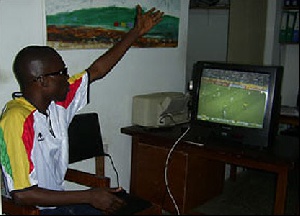Parliament on 18th August 2015, under the leadership of President Mahama approved increases in the controversial TV license fee for the various user categories to be collected by GBC to fund its operations.
Per the new tariffs, domestic users are required to pay an annual fee of GH?36 per a TV set and GH ?600 for two or more sets, whiles commercial TV users like hotels, restaurants, bars, etc., are to pay GH?36 per set, per annum or GH?3.00 per set per month. TV dealers categorised as repairers on one side and retailers and sales outlets on the other side are to pay GH?60 and GH?240 per annum respectively.
Per the TV Licensing Act 1966 (NLCD 89) as amended, mandates GBC to collect license fee annually. But what Ghana Broadcasting Company (GBC) seem to forget is the purpose of the law, the law was enacted to give enough time for GBC to focus on national issues without competing with private broadcasters for commercials. Ghanaians were made to pay for proper information, education and entertainment.
I have been reading comments from conners including social media, radio and television stations, and the comment that catch my attention was the one coming from my very good friend, Mr. Williams Apem Darko, former Director of Ghana Broadcasting Cooperation (GBC). He said “I will say that they were not paying their TV license so where were they expecting GBC to get the resources to provide them the content they want to see? In fact, if electricity cooperation was being very strict, there would not have been any GBC transmission in this country as at now because they owe them so much. As soon as they choose to demand their pound of flesh, GBC would have to close down.”
After reading this from his Facebook wall, I was extremely scandalized, and began asking myself the following questions. 1. Do we have board of directors in place? 2. Do they run commercials? 3. Who are they shareholders? 4. What are the key principles involved in running the company in terms of it financial support?
As it stands now (GBC) competes with the private media agencies for advertising money. Adding tax money on top of that is unfair. To the best of my knowledge, GBC even charges exorbitant fees as compare to the private TV stations, it charges for covering non-commercial events, even those of obvious news value. I have seen invoices issued by GBC to cover newsworthy events of a non-promotional and non-commercial nature. This means that GBC considers its airwaves as available to the highest bidder. To use taxpayer's money to endorse such a retrogressive notion of broadcasting is tantamount to subsidizing unethical broadcasting, and that must be stopped.
Opinions of Sunday, 7 January 2018
Columnist: Issah Fuseini



















